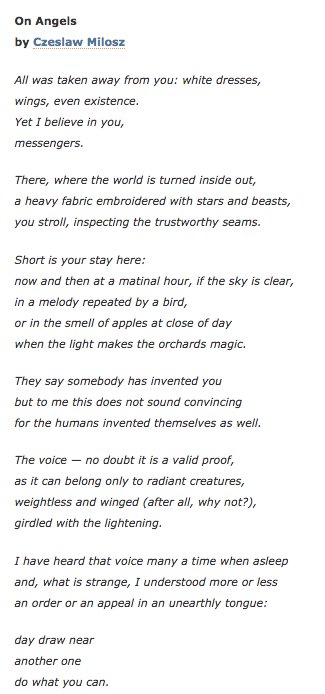I want to talk for a second about the evolution of/development of faith. I& #39;ve had more than one person tell me that they feel like they& #39;ve lost their faith and it turns out in conversation that their faith is just growing into something more mature.
Thread.
Thread.
I& #39;m going to start with James Fowler& #39;s stages of faith. It& #39;s imperfect and I& #39;m sure critiquing it will generate great dialogue, but just for y& #39;all to see that for a long time we have understood that of course faith isn& #39;t meant to look like the same thing our whole lives.
This was published in 1981. It& #39;s dated. But it& #39;s a pretty good starting point.
0) "Primal or Undifferentiated" faith (birth to 2 years), is characterized by an early learning of the safety of their environment (i.e. warm, safe and secure vs. hurt, neglect and abuse).
0) "Primal or Undifferentiated" faith (birth to 2 years), is characterized by an early learning of the safety of their environment (i.e. warm, safe and secure vs. hurt, neglect and abuse).
If consistent nurture is experienced, one will develop a sense of trust and safety about the universe and the divine. Conversely, negative experiences will cause one to develop distrust with the universe and the divine.
Stage 1 – "Intuitive-Projective" faith (age 3-7)-Religion is learned mainly through experiences, stories, images, and the people that one comes in contact with.
Stage 2 – "Mythic-Literal" faith (mostly in school children), have a strong belief in justice & reciprocity of the universe, and their deities are almost always anthropomorphic. During this time metaphors and symbolic language are often misunderstood and are taken literally.
Stage 3 – "Synthetic-Conventional" faith (aged 12 to adulthood) characterized by conformity to authority and the religious development of a personal identity. Any conflicts with one& #39;s beliefs are ignored at this stage due to the fear of threat from inconsistencies.
Stage 4 – "Individuative-Reflective" faith (usually mid-twenties to late thirties) a stage of angst and struggle. The individual takes personal responsibility for his or her beliefs and feelings.
As one is able to reflect on one& #39;s own beliefs, there is an openness to a new complexity of faith, but this also increases the awareness of conflicts in one& #39;s belief.
Stage 5 – "Conjunctive" faith (mid-life crisis) paradox & transcendence relating reality behind symbols of systems. Resolves conflicts from previous stages by a complex understanding of multidimensional, interdependent "truth" that cannot be explained by any particular statement.
Stage 6 – "Universalizing" faith, or what some might call "enlightenment". The individual would treat any person with compassion as he or she views people as from a universal community, and should be treated with universal principles of love and justice.
Again, it& #39;s not perfect--like, this theory doesn& #39;t account for how I decided I was an atheist at 13 or what got me to rabbinical school at 27. But it names some of the stages that people go through, at whatever age/in whatever order
and of course some people never get past (whatever stage) or maybe they skip stages and probably they& #39;re some stuff missing but it articulates some of the things people have trouble articulating, I think. Esp since American religious discourse is stuck in like Stage 3 I think.
Another way to slice it: Dan Libenson once talked about the Four Children of Passover as faith stages. You start out as the one who doesn& #39;t know how to ask, then you become the simple child, then go through a rebellious/overthrowing what you& #39;ve been taught place....
Until you get to a place of integrated wisdom where you engage the tradition on your own terms.
There& #39;s actually a Hasidic teaching that flips the order--the lowest level of growth is the so-called Wise Child who has all the answers, that are basically parroting information.
Then you go through rebellion, then you get to a place of simplicity, then you get to the place beyond language.
Another lens: Paul Ricoeur talks about a "second naïveté," the ability to see God shining through the words of the Bible even after one has been immersed in the potentially cynicism-inducing theories of Biblical authorship.
Like, even if it& #39;s possible that there are multiple authors to the Torah and that what we have as Torah now was redacted together through an editing process, what is there is, in a deeper way, profoundly *true* and holy wisdom about what it means to be a person...
And how to live a life in connection with the divine. Truth vs information. Wisdom vs technical fact.
This is a second naiveté poem. http://www.poetry-chaikhana.com/blog/2010/04/05/czeslaw-milosz-on-angels/">https://www.poetry-chaikhana.com/blog/2010...
And yeah, sorry for using language of "faith", which isn& #39;t really Jewish but I started with Fowler and sort of stayed in that gear. Substitute whatever language makes sense. Religious connection? Religious engagement? Theology? Whatever.
And yes, some people become atheists and stay atheists and some people never were theologically engaged anyway and you do you, believe how you believe, or don& #39;t, whatever.
My point is that engagement with these questions about God and religion and etc. can grow and change and shift over the course of your life, and if you& #39;re asking different kinds of questions about it now than you did 10 years ago, that& #39;s not because the thing is getting lost.
https://twitter.com/theradr/status/1024899066663198720?s=21">https://twitter.com/theradr/s...
https://twitter.com/velveteenrabbi/status/1024982370498355201">https://twitter.com/velveteen...
Gonna just stick this thread on non-anthropomorphic theology here. https://twitter.com/theradr/status/1018380721461833729">https://twitter.com/theradr/s...

 Read on Twitter
Read on Twitter


